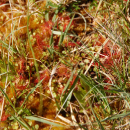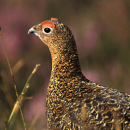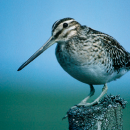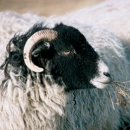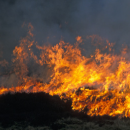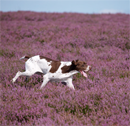18th March 2022
Video courtesy of Emily Graham Media.
The Moorland Association welcomes new research from the Game & Wildlife Conservation Trust showing that the population of rare Black Grouse remains stable on moorland in the north of England, despite successive years of poor breeding.
Research shows that 96 per cent of all Black Grouse in England live on the edge of moors managed for Red Grouse.
The minimum number of chicks required per female would be 1.3, in order to sustain the population of Black Grouse in the north of England for the future. This threshold has not been reached in six of the seven years since 2015, most likely due to periods of very cold weather at a crucial time for young chicks.
Despite these challenges, GWCT reports that the number of adults between 2005 to 2021 remains stable, suggesting that the population in the north of England is large enough to overcome difficult periods.
Once common in every county, Black Grouse numbers in the UK as a whole have been on a downward trajectory for the past 150 years, but fringes of grouse moors are the last remaining strongholds for the birds.
Climate change means that our weather is becoming more extreme, including more frequent periods of exceptionally dry weather, which would reduce the number of insects available as food for Black Grouse and other birds in the first weeks of their life. Equally, unusually cold periods in spring and early summer can kill off young chicks when they are newly hatched, or prevent chicks hatching at all.
Amanda Anderson, Director of the Moorland Association said: “Grouse moor managers have for decades provided the ideal habitat for rare moorland birds including Black Grouse. Their territory has drastically reduced over several decades and now they are only found in parts of the north of England and some areas of Scotland.
“It is clear that these species need protection and we would ask Defra to ensure that the environmental land management schemes fully support conservation work for species such as the Black Grouse.”
Moorland Association members have further assisted conservation efforts for the species by engaging in translocation projects, where a group of birds are moved to a new area of suitable habitat in order to expand their range.
Practical measures known to help support Black Grouse populations include the removal of fences and marking of deer fences which can cause injury, control of key predators such as foxes, crows and stoats, and ensuring that there is a suitable mix of native woodland, open areas and heather moorland. Groups of males come together in special, undisturbed areas on open ground to attract females, known as a lek. The pastures on the edge of grouse moors fulfil these criteria perfectly with less risk from predators.
Black Grouse leks are an incredible phenomenon, with males competing for the best females through elaborate displays of posturing, fanning their tails and jumping while issuing distinctive courtship calls that can be heard up to 4 km away.
Anyone wishing to watch a Black Grouse lek is advised to keep a good distance away, preferably a hundred metres, to avoid disturbance. Dawn is often the best time to see a lek, with the peak period being April.


